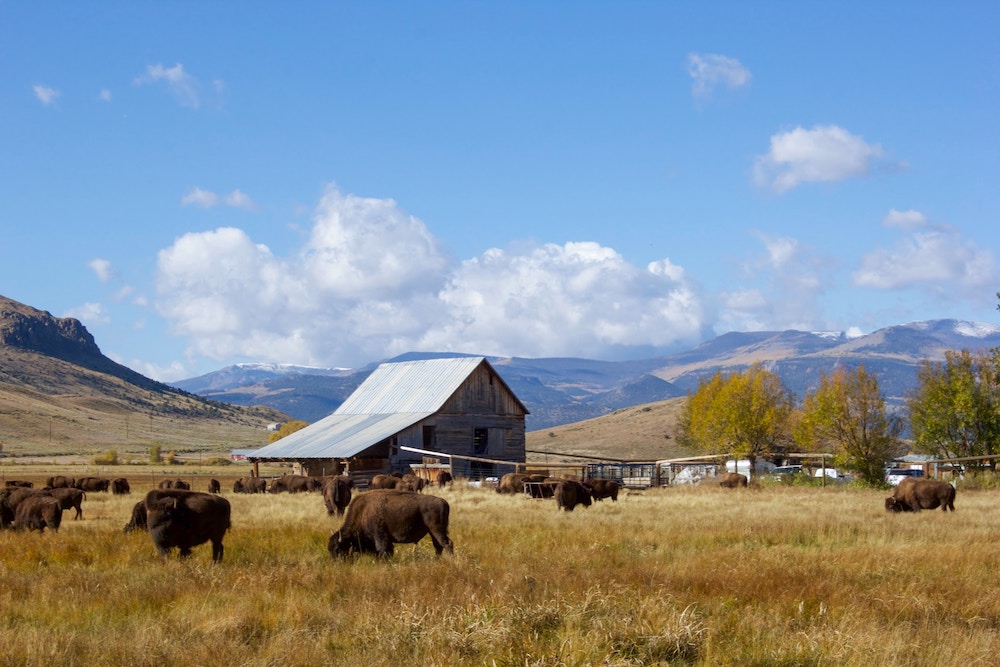
- Details
- By Chez Oxendine
- Food | Agriculture
The U.S. Department of Agriculture announced a new wave of grant funding for Tribal Nations to modernize or build new food-processing facilities through the Indigenous Animals Harvesting and Meat Processing Grant Program (IAG).
USDA will distribute $50 million in IAG funding to tribes via a cooperative partnership with Longmont, Colo.-based Oweesta, Inc., a Native Community Development Financial Institution (CDFI) intermediary.
Chrystel Cornelius, president and CEO of Oweesta, said the $50 million in funding delivered this way was “unprecedented,” and would strengthen food sovereignty efforts amid a larger movement towards better incorporating traditional Native foods and food systems into daily tribal life.
“This grant has provided a once-in-a-lifetime opportunity to solidify to Indigenous food efforts on what they deem important for their respective communities,” Cornelius told Tribal Business News. “Strengthening food tribal access is essential.”
During the White House Tribal Nations Summit earlier this week, USDA Secretary Tom Vilsack discussed the program and announced the initial grants, which include:
- The Alutiiq Tribe of Old Harbor in Alaska, will receive $1 million to buy and modernize an unused processing facility to address climate change-prompted food shortages.
- The Tribal Government of St. Paul in Alaska will receive $668,000 to re-establish reindeer meat processing.
- The Tolow Dee-ni’ Nation in southern Oregon and northern California will receive $2.4 million to expand a community space to learn and share traditional processing methods for deer, elk, and salmon.
- The Assiniboine and Sioux Tribes of the Fort Peck Indian Reservation in Montana will receive $191,000 to add a composter and walk-in freezer to an existing meat processing facility in Fort Peck.
While the application process has been completed, Cornelius said she couldn’t yet share how many projects the USDA funding would support in total. She said additional grant awards would be rolled out “incrementally,” and expects the majority of the funding to be awarded within the next three months.
That funding will support new processing facilities — an increasingly common focus among tribes in the wake of COVID-19 era supply-chain disruptions — and will also help existing producers expand their capacity with additional space or specialized equipment.
The processing of bison and other game often requires different equipment and facilities than more commonly processed animals, like cattle, Agriculture Undersecretary Sandra Eskin explained during a Tuesday press call. The new funding would make it easier for Native Americans to slaughter animals in traditional ways while making sure the meat is still safe to eat.
There are 90 meat processing facilities that currently slaughter bison under federal inspection, Eskin said.
In addition to bison and other game, the IAG program criteria is wide enough to handle new processing facilities for fish and other seafood that are often critical to subsistence and economic development for tribal communities.
The IAG grant program supplements joins a recent USDA pilot project to buy and supply bison for Native food programs, such as the Food Distribution Program on Indian Reservations, or FDPIR.
Altogether, the efforts continue a trend towards enabling self-determination and food sovereignty for Native communities, said Rob Kinneen, outreach director for Minneapolis-based nonprofit North American Traditional Indigenous Food Systems, or NATIFS.
That organization, founded by the Sioux Chef Sean Sherman, has partnered with the Department of Agriculture to produce instructional videos on traditional food preparation. Those instructions have become more important in the wake of “good progress” being made toward reincorporating and supporting traditional foodways, Kinneen said.
“It’s very exciting to me to see the progress being made,” Kinneen said. “We feel good about the communications - the dialogues that are being had and the work that’s being put into this.”
